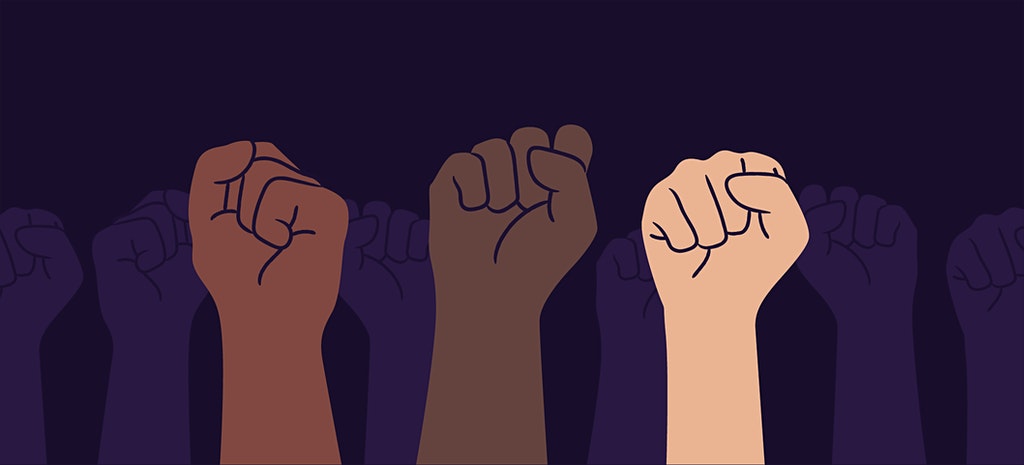New York, New York, September 9, 2020
Judicial Friends Association, an association of Black and other minority judges in New York, officially released a comprehensive Report to the New York State Court’s Commission on Equal Justice in the Courts (“Report”). The Report was submitted to Secretary Jeh Johnson, who was appointed by Chief Judge Janet DiFiore to be the Special Advisor on Equal Justice in the Courts. In the wake of the continued killing of unarmed Blacks and Latinos by law enforcement and the public outcry that followed, Secretary Johnson’s commission was tasked with reviewing the existing policies, practices and initiatives which impact institutional racism within the New York State Courts. The purpose of JF’s Report was to assist Secretary Johnson with fulfilling this mission. It concludes that systemic racism and unconscious bias exist throughout the New York State Court system.
Report Overview
The Report is a detailed compilation of interviews and research regarding the perpetuation of systemic racism within the court system. It not only identifies sources of systemic racism and unconscious bias within the court’s existing policies and practices, but it also includes numerous recommendations offering tangible solutions for lasting, maximum impact to eradicate systemic racism and unconscious bias in the court system. These recommendations promise to have widespread impact on judges and court systems throughout the nation.
The Report discusses systemic racism related to the following areas of emphasis:
- Appointment processes for judges and non-judicial staff;
- Assignment of cases and parts to judges, including the vast authority of administrative and supervisory judges, lack of diversity in these positions, assignment of judges to specialty parts and high-profile, high-value or notable cases and the lack of transparency in the process;
- Court Officers, including their treatment of court users, Black attorneys and litigants, their selection and training, racism within the New York State Court Officers Association and little diversity amongst Court Officers, particularly in supervisory positions;
- How implicit bias impacts the criminal justice system, particularly as it relates to the police, prosecutors and judges and the need for an auditing system to track judicial decisions based upon race and ethnicity and patterns of implicit bias;
- Use of data to analyze statistics to highlight and eliminate racial and ethnic disparities in sentences;
- The intersection between the courts and the police and prosecutors;
- General court reform for widespread, lasting impact, including the following:
- current system for reporting racial discrimination
- expansion of judicial community outreach
- elimination of implicit bias during jury selection and trials through the creation of videos to be played to potential jurors, enactment of court rules and model jury instructions
- expansion of the jury pool to include more racial and ethnic minorities and young people
- creation of model Individual Part Rules for judges to denounce racism and discrimination in all forms and to encourage participation of racial and ethnic minority and women attorneys
- increased efforts to learn to pronounce unfamiliar names of racial and ethnic
minorities to show respect for all people; and
- Family Court and Housing Court issues.
The Report also includes charts detailing a breakdown of the number of Black judicial and non-judicial staff for the past five to six years which indicate a lack of diversity in the court system, particularly in key positions of authority. As indicated in the Report, historically, racial minorities have been underrepresented in judicial appointments to the bench and in judicial and non-judicial supervisory positions. “Judicial racial diversity is essential to increase public confidence in the judiciary and the courts, provide decision-making power to formerly disenfranchised populations, and ensure equal justice for all. A racially diverse judiciary promotes an exchange of different ideas and points of view and reduces the effect of unintended racial, gender and institutional bias.”
After a comprehensive and exhaustive review of these issues, JF offered solutions to eliminate systemic racism and the effects of unconscious bias so that the court system can be a more inclusive and welcoming institution. Clearly, the judges took the lead in identifying ways to greatly improve the courts and combat racial bias and discrimination within the court system and beyond.
For further information, please contact Hon. Erika Edwards, President of The Judicial Friends Association, Inc., at erikamcdan@aol.com.
About the Judicial Friends Association, Inc.
The Judicial Friends Association, Inc. (“JF”) was established in 1976 by a group of Black judges within the State of New York seeking the fair and just treatment of minority judges, judicial staff and attorneys. JF serves to educate and advocate on behalf of the judiciary, court staff, and attorneys on issues affecting the court system.

